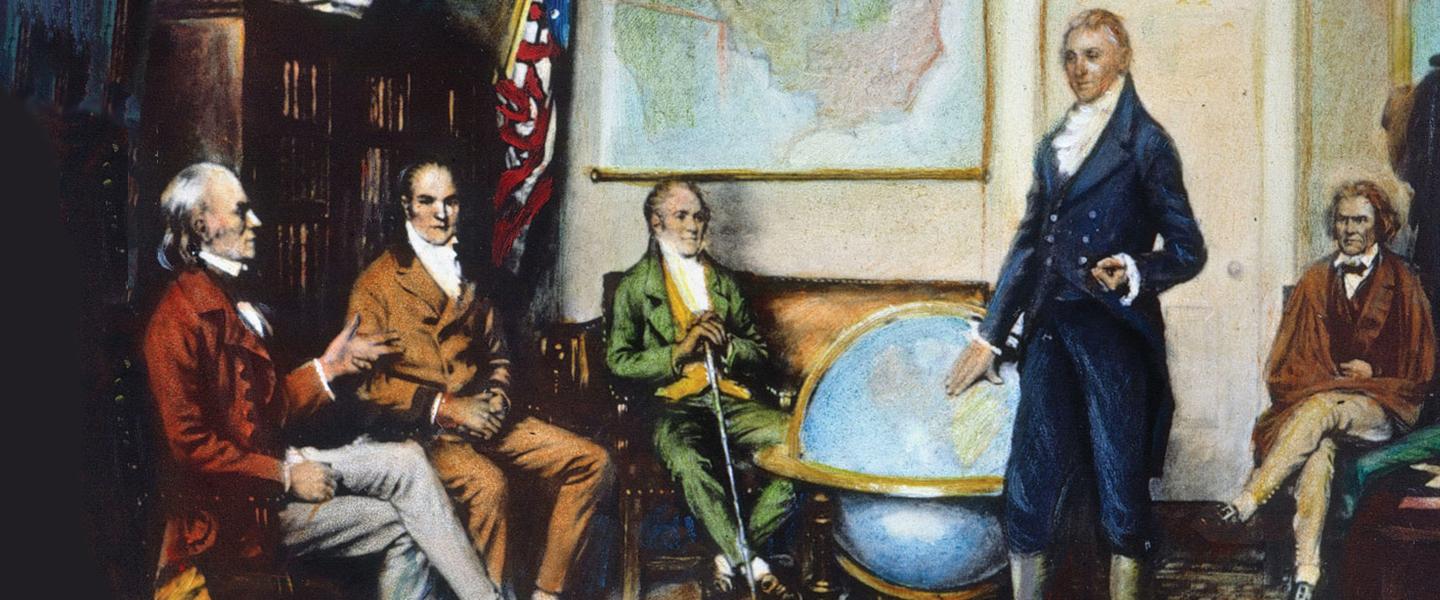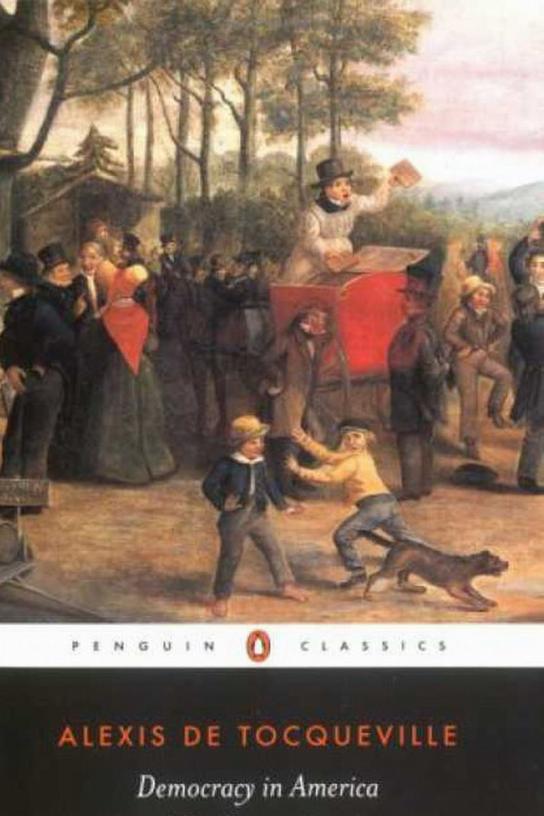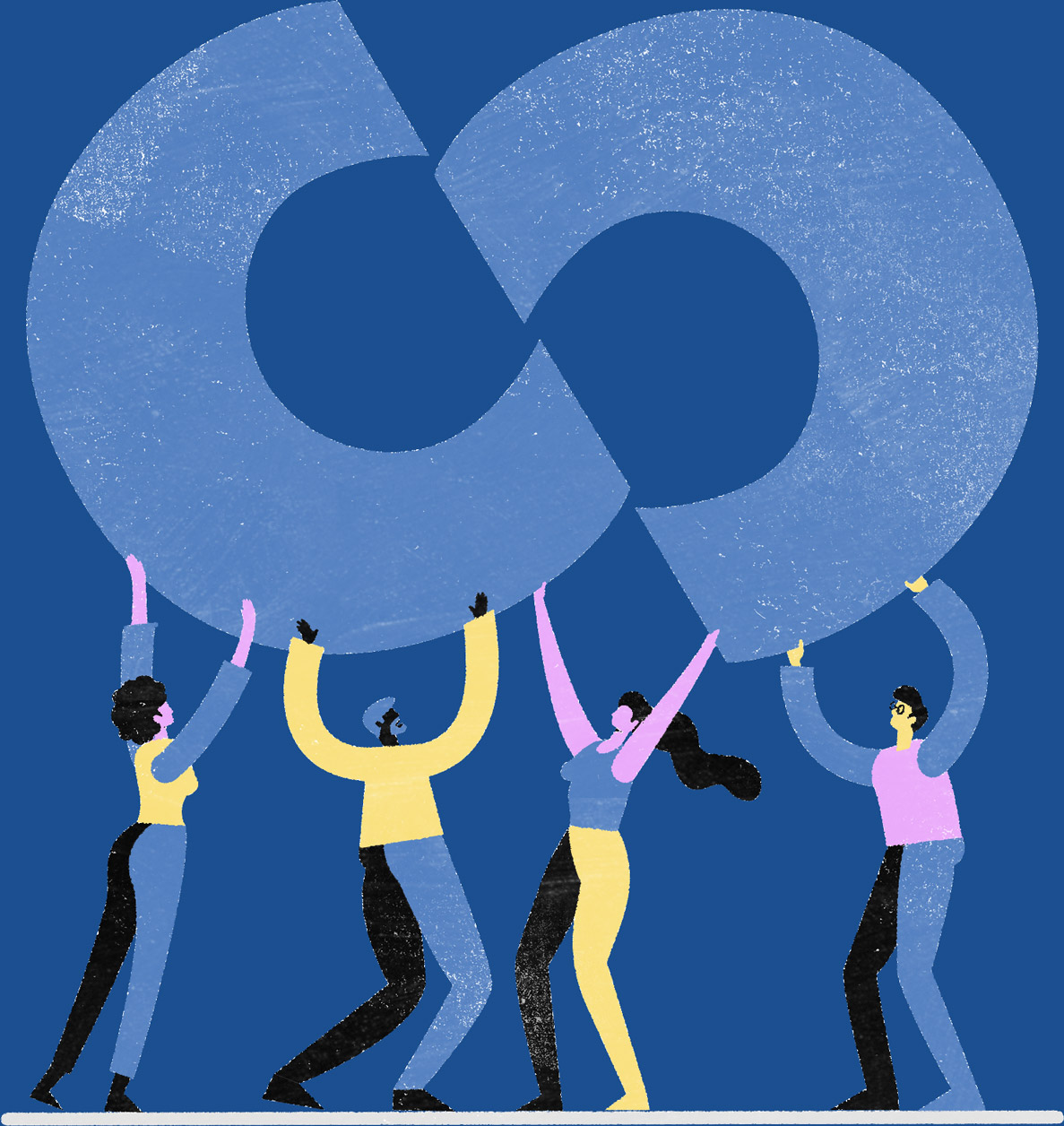Philosophy


Richard John on Tocqueville’s Democracy in America
This is an excerpt from a conversation between Richard John, Professor of Journalism and Core faculty, and Roosevelt Montas CC’95, former Director for the Center of the Core Curriculum in 2018. They discuss Tocqueville’s Democracy in America, on the Contemporary Civilization syllabus.
Roosevelt Montas:
Richard, can you give us kind of a rundown of what this book is? What the project behind it and its genesis is?
Richard John:
Tocqueville was a 25-year-old French aristocrat with a new government in power, government that was favorably disposed to him. He got a grant to come to the United States to study, of all things, prisons. And that created, for him, the opportunity to investigate a lot of things other than prisons; and among them was this phenomenon which he called democracy. By which he understood not a set of institutional arrangements, and not a protection of individual rights, not even a kind of legislative procedures, but social equality –And that was his forte. Social equality. The idea that there could be a place where ordinary people did not regard themselves as inferior. In which there was no class of individuals who by birth, or presumption, regarded themselves and were regarded as set apart. And of course Tocqueville understood how strange that was because he himself was a French aristocrat who was very conversant with the ways of the French hierarchical social order. And he was kind of curious to see what would happen if you kind of perform the social experiment of unfolding a society in which those hierarchical bonds had been stripped away.
RM:
That sheds light on the very opening sentence of Democracy in America, which I often point out to students and ask them what they make of it, because de Tocqueville begins the book by saying, “The first thing that struck me was the condition of social equality in America. I was struck by social equality.” And when I ask my students about that they will often say, “What is he talking about, social equality in America?”
RJ:
He doesn’t mean economic equality. And he certainly – he’s well aware of the existence of slavery and he’s not contending the slaves are socially equal to the whites. He’s well aware of the degraded position of Native Americans, he’s not contending they’re equal to whites. He’s very familiar with the remarkable difference in social position of men and women.
But what does strike him, and what I believe is still more true of the United States than not, is that ordinary people regard themselves – and he was thinking mostly of men. But today let’s say ordinary people, Columbia students, regard themselves – if they’re American or if they’re socialized in the United States – as having opinions that they consider to be their own. That they regard their destiny as something that is within their own control. And that their connection with the wider world, with the wider society, is something that they believe they choose.
That is to say, they are individualists. Not in the sense that they are eccentric because Tocqueville didn’t believe Americans were particularly eccentric – it was one of the things that troubled him about America – but that ordinary people thought of themselves as more or less self-contained. And that’s very different from Aristotle’s Politics. It’s very different from the world of Machiavelli. It’s different from the world of – really that any of the social theorists wrote about until pretty much Tocqueville’s time.
The term “individualism” had just recently been coined. And the 1840 edition – that is to say the second volume of Democracy – is one of the first books in the English language to use the term “individualism.”
And it wasn’t something that he approved of or he thought was necessarily laudable. He regarded it as inevitable. And he regarded it as providential. This was the future and he better, he felt – for the sake of his French – of his fellow Frenchmen, and in particular for the sake of the future of the French polity, because he came to America in order to learn things that would help him as a public figure in France. This was the future, he wanted to learn how it worked and he was more or less astonished, initially, at the thought that it could work at all.
In other words, he is not critical celebrator of democracy, but he is convinced that democracy is, in some complicated way, in alignment with the designs of providence. But even if it weren’t, it’s the future and we’d better understand it.
Tocqueville came to the United States at a moment when the second –what
historians call the Second Great Awakening – was in full flower. And this was a remarkable evangelical upsurge – American Temperance Society founded in 1826. It had hundreds of thousands of members. Tocqueville could not believe, he thought it was a joke that a hundred thousand Americans pledged to abstain from drinking alcohol.
And they did so in the most public of ways. That is to say, they all signed a petition which was then circulated throughout the locality. “In France,” Tocqueville said, “if a hundred-thousand people wanted to do something about alcohol, each of those a hundred-thousand men would make an individual statement to a public figure.” In other words you’d have a hundred-thousand personal appeals.
In the United States, however, it took a completely different form. And he – there are letters in which he writes back to his French friends and contemporaries saying, “You’re not gonna believe this. You’re not gonna believe that on Sunday the streets are empty. Everybody goes to church. You’re not gonna believe that, while there’s no laws against publishing about, say atheism or some kind of controversial religious topic, nobody does.”
That because the pressure for conformity, the pressure to join together for the common good, was so great – in large part because of the decentralization of the polity and the fact that ordinary people understood that they had to join together if they were gonna get anything done. Because after all no one’s better than anyone else, so why should you look to somebody else to fix the road or to start up a new enterprise, just do it! Just do it; that was the impulse.
What was startling and disturbing about it for Tocqueville was the idea that individuals might not be able to shape the course of events. That we might be simply carried along by a torrent that was literally unstoppable. And Tocqueville lost his – what, his great-grandfather and a couple of other relatives to the guillotine in the French Revolution – he was well aware of the power of what he would have called the “mob.” The power of kind of unchecked social and political activism, and he was very troubled by it.
I think – students sometimes read Tocqueville’s passages on voluntary associations – certainly politicians do, and fundraisers – as a good thing. As who could possibly object to a voluntary association to end drinking; or a voluntary association to promote some other – a worthy cause.
But for Tocqueville the possibility that such an organization might get out of control; that it might lead to mob action; that it might take a political form; was very disturbing. Because, for Tocqueville, democracy is inevitable, but freedom is good. And I think that’s a simple way of putting it. Democracy can be good, democracy can be bad; but freedom is good. And this is a book about finding a way to preserve freedom in a society that’s hurtling in a direction that, for Tocqueville and for many in his generation, did not seem amenable to any kind of social direction.

Book cover of Tocqueville's Democracy in America
RM:
Right. He finds that Americans love equality more than freedom. So he sees a great threat to freedom in American democracy.
RJ:
Exactly. And nothing brings that point out more clearly than the astonishing passage in which Tocqueville predicts that in the 20th century there’ll be two powers astride the earth, the United States and Russia –
RM:
That is amazing –
RJ:
One dedicated to the principle of freedom and one to the principle of despotism. It takes – the students gasp when they hear that. It was even more arresting when I was young, when the Soviet Union was still a going operation, but it’s certainly salient to students today.
But what’s not going to change is social equality. That is providential. That is fixed. That is inexorable. And if you understand that and how terrified Tocqueville is of that prospect, then you can, I think, get a much better grasp of what his central, abiding concern is.
I think he – I think he said at one point that he wrote this book under a kind of religious dread. Tocqueville would have understood political correctness instinctively. That is to say, the idea that if you hold an unpopular opinion and you are challenged for holding that unpopular opinion, you have nowhere to go. You cannot fall back on your social status, your rank; you cannot fall back on a particular set of religious or cultural beliefs. You are alone and you can well be ostracized.
And that kind of ostracism, our students feel today. Particularly when you talk with them one-on-one. Any number of subjects that Columbia students will tell you they’ve learned not to talk about. And that is a sensibility, I think, that Tocqueville would have understood and that he speaks to in our students today.
We often – we forget that it was Tocqueville that coins the term “tyranny of the majority.” We ascribe it to John Stuart Mill who was a later English political philosopher who was very taken with Tocqueville’s analysis, and Mill draws out this – the negative implications. That is to say you should not believe anything that a large number of people believe, on principle.
That idea that you should be eccentric; that you should be distinctive; you should be an individualist as opposed to being an individual; those were sensibilities that were hard to find in America in the 1830s, and Tocqueville was troubled by that absence. He was an instinctive aristocrat. He admired individuals who took positions that were unpopular. Who were willing to risk the ostracism of the crowd. And he found very little evidence of that in America.
RM:
At the time of writing, there was a sense of American Exceptionalism and America was the future and the ‘divine guard of the movement of history’. Is this still applicable today?
RJ:
Where are we today? Are we going anywhere? Are we going backward? Do we have confidence in American institutions?
I like to think that there’s still reason to have confidence in what Tocqueville was so impressed by; in core values, in the mores, in the habits of the heart, the dispositions of ordinary people. And for Tocqueville they were even more important than formal institutions.
But are we going somewhere? Is history on a course that we could predict? Students don’t think so, and I’m skeptical as well. Where is social media taking us?
A couple of years ago we would have applicants to our PhD program, and they were convinced that social media was going to democratize society, and it was going to bring about salutatory political reform, and look what happened in the Arab Spring. And I and my colleagues were skeptical about this, and our skepticism – I think – has been born out.
It’s one thing to be enmeshed in the local community in which you’re active in a church, you’re active in a voluntary association, you’re taking part in public life, you’re running a business, you are, perhaps, concerned about whether there’s enough firewood for the school. That’s one kind of social engagement.
It’s another kind of social engagement to sit in front of a – of an iPhone and hit “Likes” hour after hour. That’s a different kind of social engagement, and it’s not the kind of social engagement that is conducive to the development of the values that Tocqueville saw as necessary to prevent democracy from becoming tyranny.

Please log in to comment.